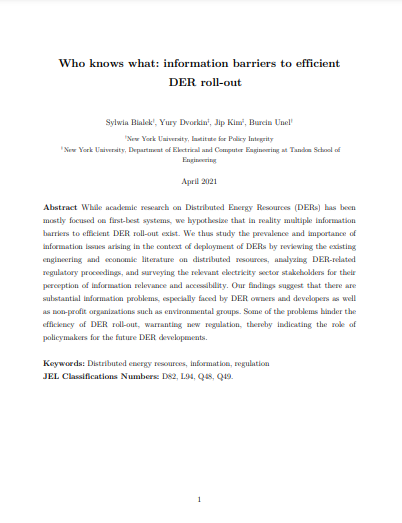The Institute for Policy Integrity produces a variety of publications. Our research reports develop in-depth research on our core issues, while our policy briefs and issue briefs provide focused analysis on more timely or particular topics. Our academic articles and working papers offer original scholarly research and analysis from established experts as well as fresh new voices.
Latest Publications
-
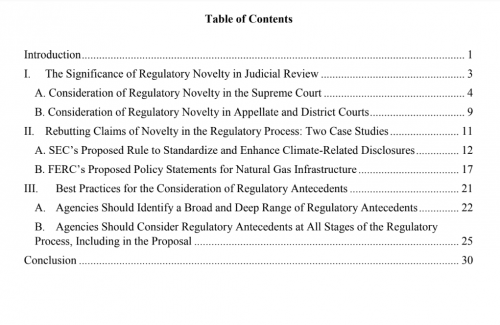
Regulatory Antecedents and the Major Questions Doctrine
Working paper
In recent years, federal courts have increasingly assessed the legality of regulatory action by considering its antecedents, or lack thereof, in prior agency actions. Yet as this article explains, federal agencies have insufficiently adapted to this increased judicial focus on regulatory antecedents. While significant agency rulemakings typically include extensive dockets with many different types of analysis, they have generally provided limited analysis of regulatory antecedents. This article suggests that agencies more extensively catalog regulatory antecedents at all stages of the rulemaking process, from drafting to promulgation.
-
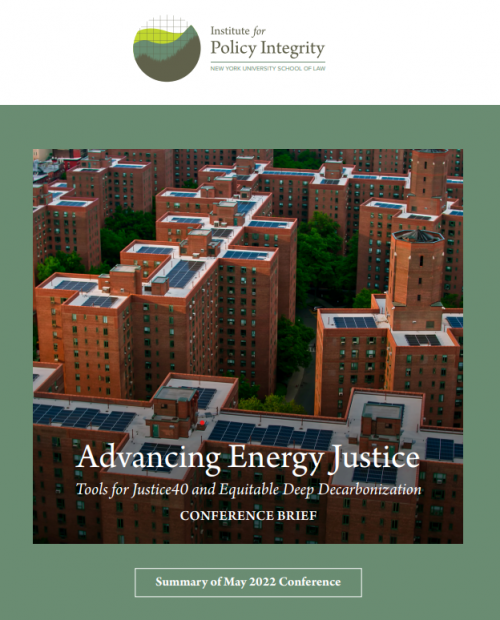
Advancing Energy Justice Conference Brief
Tools for Justice40 and Equitable Deep Decarbonization
This brief summarizes some of the major points of discussion from our May 2022 conference, “Advancing Energy Justice: Tools for Justice40 and Equitable Deep Decarbonization.” The event brought together federal agency staff working to implement Justice40 with researchers to discuss how academic research can be more responsive to communities’ needs. This brief summarizes the varied views expressed by conference participants and is not intended to be a consensus or recommendation document.
-
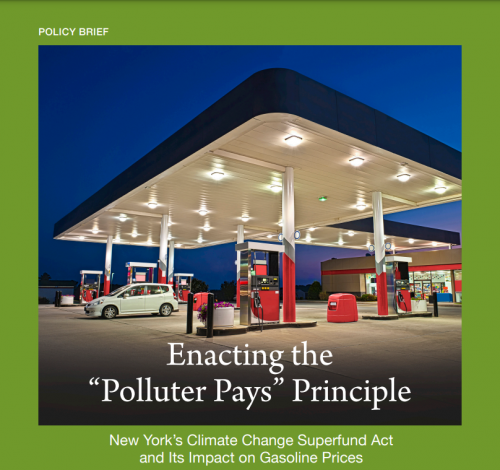
Enacting the “Polluter Pays” Principle
New York’s Climate Change Superfund Act and Its Impact on Gasoline Prices
This policy brief analyzes how New York State’s recently proposed Climate Change Superfund Act is most likely to affect consumer gasoline prices. The Act would require payments from fossil-fuel companies based on their historical contributions to current greenhouse gas levels in the atmosphere. The payments would be used to build green infrastructure to help the state adapt to climate change. The brief finds that the Act would likely have a negligible impact on current and near-term oil prices, while potentially lowering future energy prices in New York, including for transportation.
-
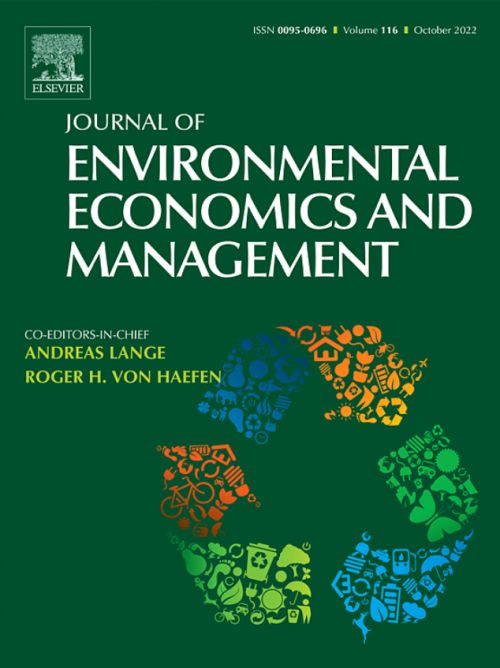
Do Non-Damaging Earthquakes Shake Mortgage Lenders’ Risk Perception?
Working paper in Journal of Environmental Economics and Management
This study examines how banks respond to earthquakes that convey seismic risk salience but do not cause damage, i.e., noticeable non-damaging earthquakes (NNDEs). Using evidence from California, we find loans more likely to be denied or sold after increased NNDEs. Banks with fewer assets, more diversified branching markets, or stronger sales capability relied more on securitization to transfer the perceived seismic risk. We show evidence that banks likely learned about the NNDEs through personal experience and local news. The effects of NNDEs persisted up to three years. Meanwhile, the NNDEs only caused moderate and temporary collateral devaluation but did not increase the observable default risk. Thus, banks' responses most likely resulted from the increased risk salience of future damaging earthquakes during the mortgage term. Our findings call for reevaluations of the heuristics in banks' risk-perception updating and have implications for designing more efficient disaster risk-sharing mechanisms in the financial market.
-
Who Knows What: Information Barriers to Efficient DER Roll-Out
Published in International Association of Energy, Environment and Economy Journal
While academic research on Distributed Energy Resources (DERs) has been mostly focused on first-best systems, we hypothesize that in reality multiple information barriers to efficient DER roll-out exist. We thus study the prevalence and importance of information issues arising in the context of deployment of DERs by reviewing the existing engineering and economic literature on distributed resources, analyzing DER-related regulatory proceedings, and surveying the relevant electricity sector stakeholders for their perception of information relevance and accessibility.

